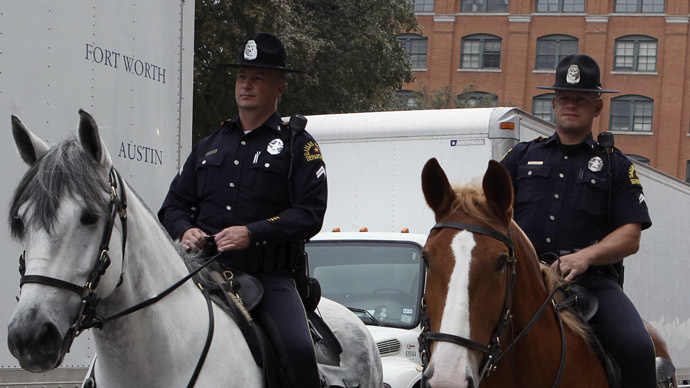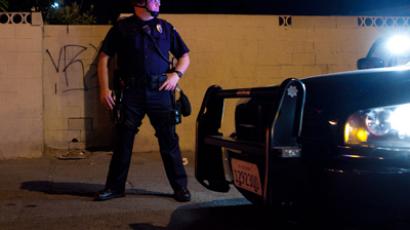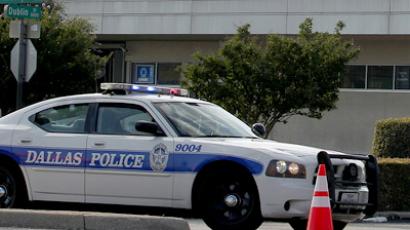Dallas police insist filming cops 'a major safety issue' for civilians

Dallas police officers, including the union that represents them, are asking citizens organized to keep watch over cops with recording devices to stop filming law enforcement because it is causing unspecified “major safety issue[s].”
The calls for camera disarmament come after an incident two weeks ago that seems to have shaken the Dallas Police Department. According to CBS Dallas-Fort Worth, a woman with the local police accountability group Cop Block was “following” a police officer, according to CBS Dallas-Fort Worth, recording him making traffic stops with a “video camera.”
“He was conducting traffic stops,” DPD Sergeant Derek McCarter told CBS-DFW. “The officer called for cover to further investigate. The woman refused information and gave leading answers.”
Dallas Police Association President Ron Pinkston said this business of taping police officers is worrisome, as these citizens could get hurt.
“It’s creating a major officer safety issue,” he said without further specifying incidents in which law-abiding citizens filming officers have created hazardous conditions.
“We don’t know who it is pulling behind us. We don’t know they’re there to videotape, they might be part of… if that guy has (sic) just done a kidnapping they could be part of the kidnapping. You don’t know.”
In late 2012, the US Supreme Court upheld a citizen’s right to record police officers performing their official duties.
Thus, some Dallas officers have been notified by “an email,” according to CBS-DFW, that citizens are acting lawfully by filming police action.
The police union’s officials say they support dashboard cameras in squad cars and the Dallas Police Department’s plans to acquire body cameras for officers. But the union believes this is enough oversight for police action, CBS-DFW reported.
Police in Dallas and the surrounding area have been blamed for wasting little time in resorting to force against suspects.
Late last year, a Dallas police officer shot a 52-year-old mentally ill man. The incident was caught on video, which proved that the victim was not a threat to officers. The officer was subsequently fired and may face a first degree felony charge of aggravated assault.
In July 2012, a Dallas police officer, who was reportedly exhausted after chasing a suspect from a drug house, eventually shot and killed the unarmed man, prompting hundreds of local neighbors to form an impromptu protest in the area. The incident led the Dallas Police Department to change its chase policies, ordering officers to “stop a pursuit if the officer loses his weapon or communications, or if he loses sight of the suspect, or if the officer is too tired to continue the chase,”according to Texas Monthly.
Similarly, in September 2012, an unarmed man was shot at 41 times and killed by Dallas County police amid a traffic chase. A police dog was then sent into the cab of Michael Vincent Allen’s car. The German Shepherd bit Allen in the neck and jaw before dragging him to the pavement. A bystander had filmed the incident. His recording device was confiscated by police, who deleted the video. The shooting officer was eventually indicted for manslaughter by a grand jury.
Last December, amid these incidents of police brutality that mobilized the local population, a Texas criminal appeals court judge handed law enforcement increased authority, ruling that police in the state may now obtain a search warrant based on “a prediction of a future crime.”
Related, in March, the Illinois Supreme Court struck down the state’s broad eavesdropping law that prohibited the audio recording of any person, public or not, without consent.














